
Downtown Beirut: The Heartbeat of Lebanon
Downtown Beirut, often referred to as the ‘Solidere area,’ is the vibrant and sophisticated core of Lebanon’s capital. This neighborhood is a beautiful blend of historic charm and modern elegance, making it a must-visit destination for any traveler. The area is brimming with cultural landmarks, upscale shopping destinations, and a variety of dining options that cater to all tastes. Strolling through the streets of Downtown Beirut, you will encounter beautifully restored buildings that reflect the city’s rich history and architectural heritage. The famous Martyrs' Square stands as a poignant reminder of Lebanon’s past, while the nearby Mohammad Al-Amin Mosque and Saint George Maronite Cathedral showcase the city’s religious diversity and stunning architectural design. Beirut Souks, an extensive shopping complex in the heart of downtown, offers a mix of luxury brands and local boutiques. This is the perfect place to find unique souvenirs or simply enjoy a leisurely day of shopping. Additionally, the area is known for its vibrant nightlife, with a plethora of chic bars, clubs, and restaurants where you can unwind after a day of exploring. Downtown Beirut is not just about its bustling streets; it also offers serene spots like the Zaitunay Bay, where you can enjoy a leisurely walk by the marina, dine at waterfront restaurants, or simply take in the picturesque views of the Mediterranean Sea. With its blend of old-world charm and contemporary flair, Downtown Beirut promises an unforgettable experience for any visitor.
Local tips in Downtown Beirut
- Visit Martyrs' Square early in the morning to avoid crowds and take in the historical significance in peace.
- Wear comfortable shoes as the best way to explore Downtown Beirut is on foot.
- Make reservations ahead for popular restaurants and bars, especially on weekends.
- Check out the local arts scene at the Beirut Art Center or small galleries scattered around the neighborhood.
- Enjoy a sunset stroll along Zaitunay Bay for a stunning view of the Mediterranean.
Downtown Beirut: The Heartbeat of Lebanon
Downtown Beirut, often referred to as the ‘Solidere area,’ is the vibrant and sophisticated core of Lebanon’s capital. This neighborhood is a beautiful blend of historic charm and modern elegance, making it a must-visit destination for any traveler. The area is brimming with cultural landmarks, upscale shopping destinations, and a variety of dining options that cater to all tastes. Strolling through the streets of Downtown Beirut, you will encounter beautifully restored buildings that reflect the city’s rich history and architectural heritage. The famous Martyrs' Square stands as a poignant reminder of Lebanon’s past, while the nearby Mohammad Al-Amin Mosque and Saint George Maronite Cathedral showcase the city’s religious diversity and stunning architectural design. Beirut Souks, an extensive shopping complex in the heart of downtown, offers a mix of luxury brands and local boutiques. This is the perfect place to find unique souvenirs or simply enjoy a leisurely day of shopping. Additionally, the area is known for its vibrant nightlife, with a plethora of chic bars, clubs, and restaurants where you can unwind after a day of exploring. Downtown Beirut is not just about its bustling streets; it also offers serene spots like the Zaitunay Bay, where you can enjoy a leisurely walk by the marina, dine at waterfront restaurants, or simply take in the picturesque views of the Mediterranean Sea. With its blend of old-world charm and contemporary flair, Downtown Beirut promises an unforgettable experience for any visitor.
Iconic landmarks you can’t miss
Martyrs' Square
Explore Martyrs' Square, a historical plaza in Beirut that embodies the spirit of resilience and culture in Lebanon's capital city.
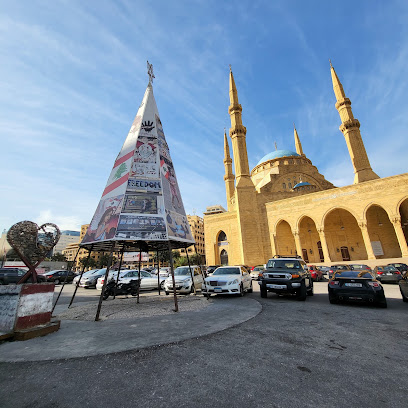
Place de l'Étoile
Discover Place de l'Étoile in Beirut: a historic square blending stunning architecture with a vibrant cultural atmosphere in the heart of the city.
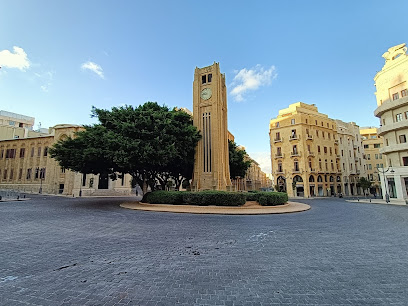
I love Beirut
Experience the heart of Beirut at 'I Love Beirut,' a symbol of resilience and vibrant Lebanese culture, perfect for photos and lasting memories.
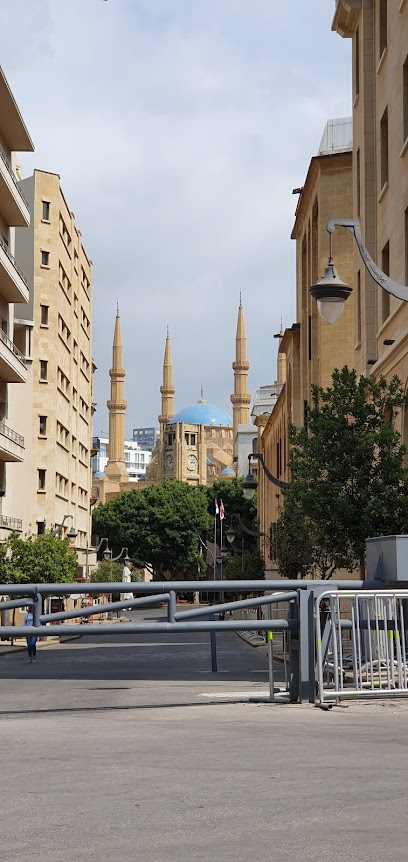
Downtown Tree
Experience the heart of Beirut at Downtown Tree, a vibrant landmark embodying Lebanese culture, community, and resilience in the city center.
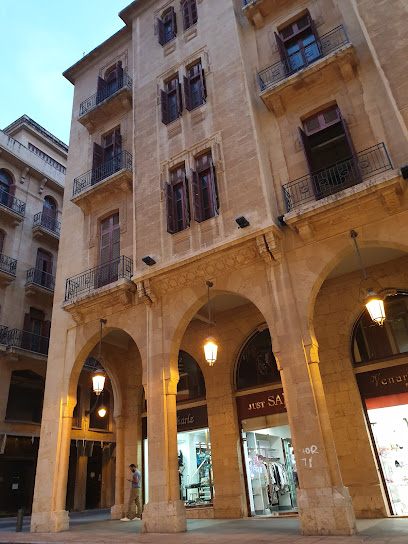
Statue Of The Immigrant
A tribute to the courage and resilience of immigrants, the Statue Of The Immigrant stands as a beacon of hope in the heart of Beirut.
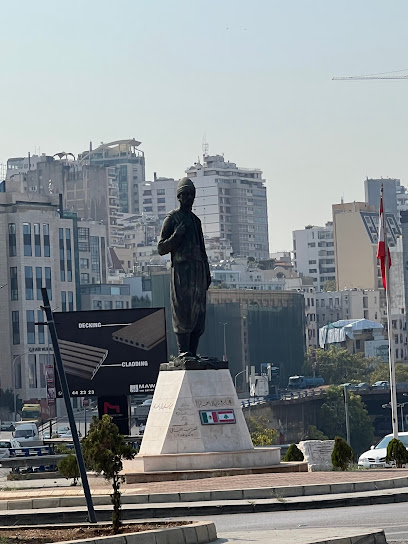
Roman Forum of Beirut
Explore the ruins of ancient Berytus at the Roman Forum of Beirut, a window into the city's Roman past in the heart of downtown.
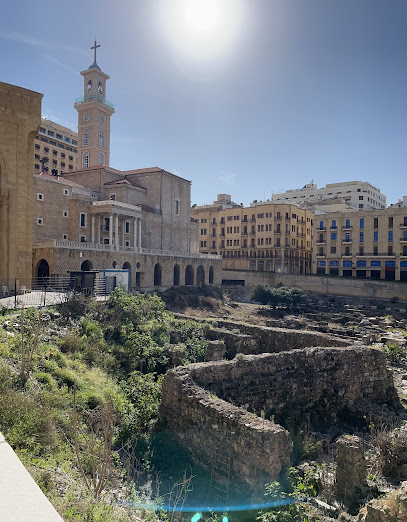
Mausoleum of Rafic Hariri
Visit the Mausoleum of Rafic Hariri in Beirut, a serene monument honoring a leader's legacy and the resilience of Lebanon. A place for reflection and remembrance.
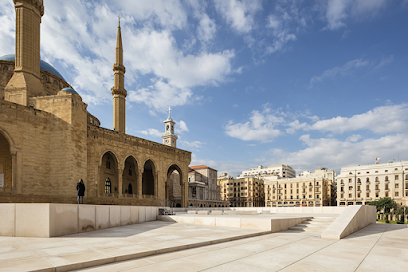
Hamidiye Clock Tower
Explore the Hamidiye Clock Tower in Beirut, a symbol of Ottoman heritage and resilience, standing tall in the heart of the city since 1897.
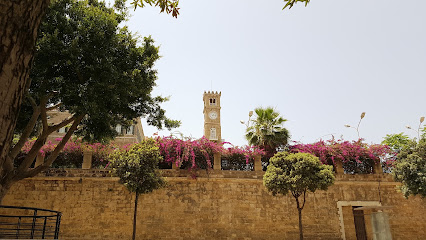
Beirut Christmas Village
Discover the magic of Beirut Christmas Village, where festive lights, local crafts, and joyous celebrations come together to create a memorable holiday experience.
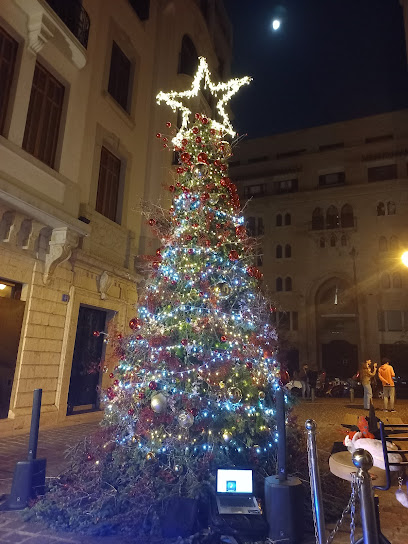
Berytus Saifi Archaeological Park - موقع الصيفي الأثري، بيروت
Uncover Beirut's ancient past amidst the modern cityscape at Berytus Saifi Archaeological Park. Explore Roman ruins and stunning mosaics.
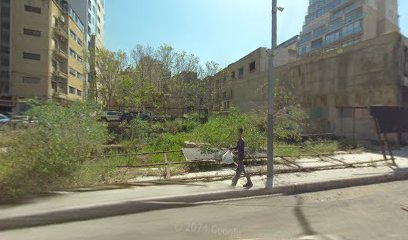
Unmissable attractions to see
Zaitunay Bay
Discover the vibrant Zaitunay Bay - a stunning marina and promenade in Beirut, offering exquisite dining, breathtaking views, and lively entertainment.
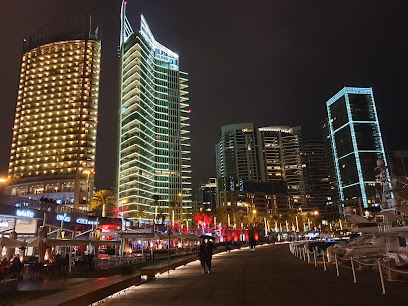
National Museum of Beirut
Discover the rich cultural heritage of Lebanon at the National Museum of Beirut, a treasure trove of archaeological wonders.
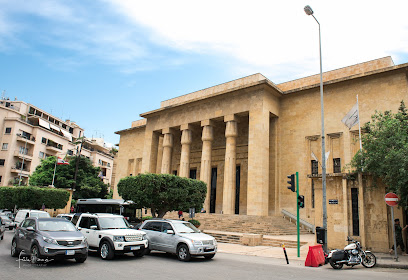
Nicolas Sursock Museum
Explore the Nicolas Sursock Museum in Beirut, a treasure trove of modern art reflecting Lebanon's vibrant cultural scene.
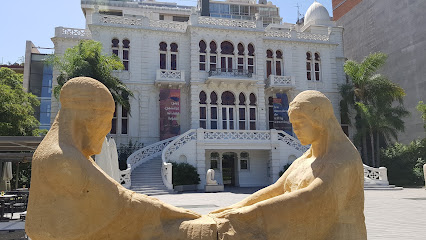
Beirut Christmas Village
Experience the magic of the holiday season at Beirut Christmas Village, a vibrant celebration of culture, joy, and festive spirit in the heart of the city.
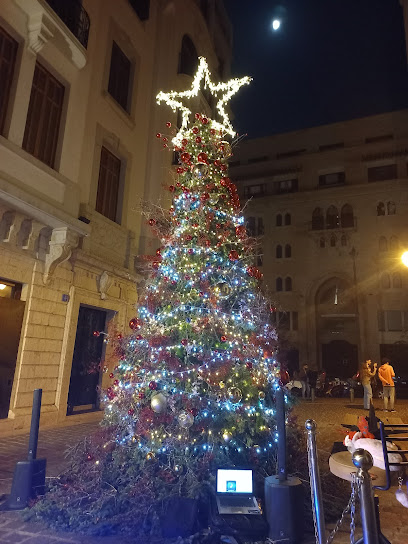
Nexus Tours Lebanon
Discover the vibrant culture and breathtaking landscapes of Lebanon with Nexus Tours. Your adventure in Beirut starts here.
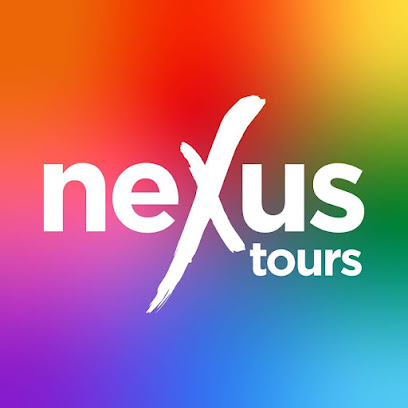
Essential places to dine
Em Sherif Cafe
Experience authentic Lebanese cuisine at Em Sherif Cafe in Beirut - where tradition meets elegance.
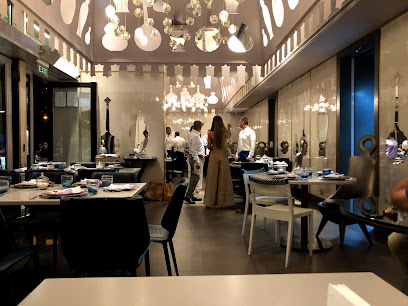
Babel Bay
Experience the best of Lebanese cuisine at Babel Bay in Beirut – where tradition meets modernity amidst stunning Mediterranean views.
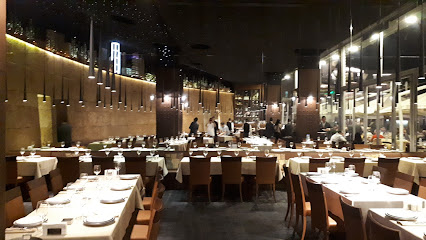
Leila Restaurant Zaitunay Bay مطعم ليلى
Discover authentic Lebanese cuisine at Leila Restaurant in Zaitunay Bay with stunning views and an elegant ambiance.
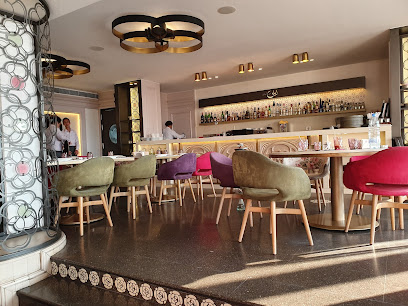
BeBabel
Savor authentic Lebanese flavors at BeBabel in Beirut's Minet El Hosn - where tradition meets modern dining.
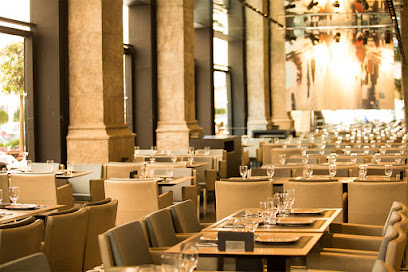
L'Avenue Du Parc
Experience authentic French cuisine in Beirut at L'Avenue Du Parc, where elegance meets exquisite flavors for an unforgettable dining experience.
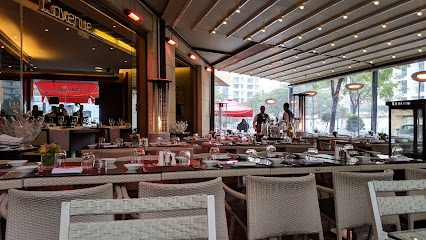
Gavi Restaurant
Experience authentic Italian cuisine at Gavi Restaurant in Beirut - where tradition meets taste in every dish.
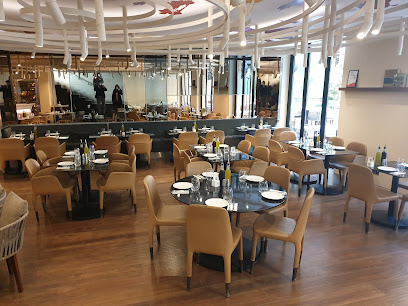
Cocteau Restaurant
Discover the exquisite flavors of Lebanon at Cocteau Restaurant in Beirut – where tradition meets modern culinary artistry.
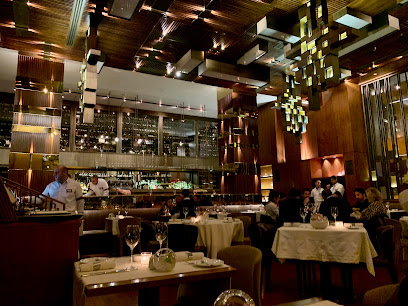
The Met Metropolitan Eatery
Discover the essence of Lebanese cuisine at The Met Metropolitan Eatery in Beirut, where tradition meets modern culinary art.
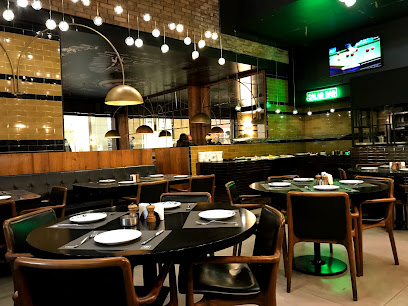
SAX
Experience exquisite cuisine and vibrant live music at SAX, one of Beirut's top restaurants for nightlife enthusiasts.
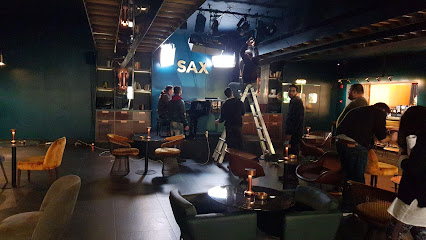
Skirt
Discover Skirt in Beirut – where innovative cuisine meets warm hospitality in a stylish setting.
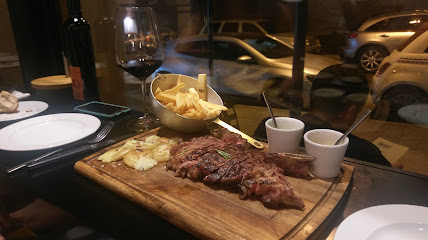
Markets, malls and hidden boutiques
Cookie Dough Boutique
Explore Cookie Dough Boutique in Beirut for trendy children's clothing, baby essentials, and stylish maternity wear in a family-friendly environment.
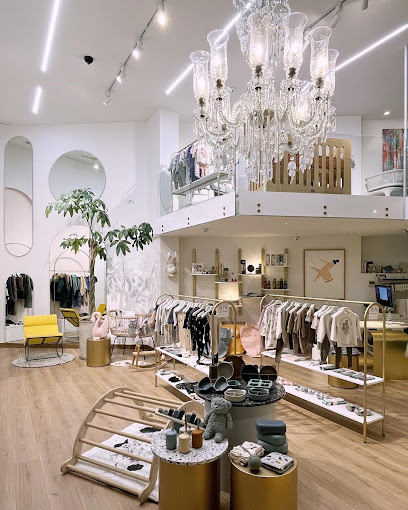
GS Downtown
Explore the chic fashion scene at GS Downtown in Beirut, where modern style meets local craftsmanship in a welcoming atmosphere.
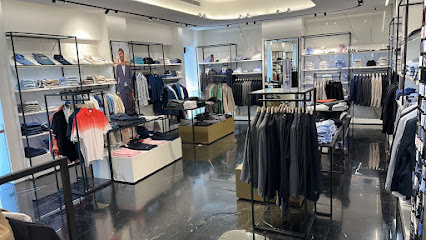
Orient 499 Beirut
Explore the vibrant mix of fashion and home decor at Orient 499 in Beirut, a must-visit hub for stylish shoppers and home enthusiasts.
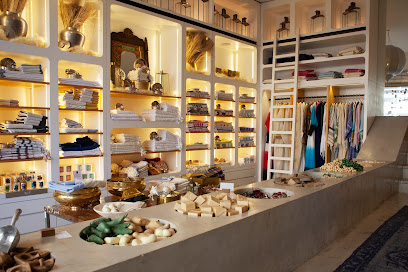
Gucci
Explore the luxurious world of Gucci in Beirut, offering exclusive collections of clothing, accessories, and more in a stunning boutique setting.
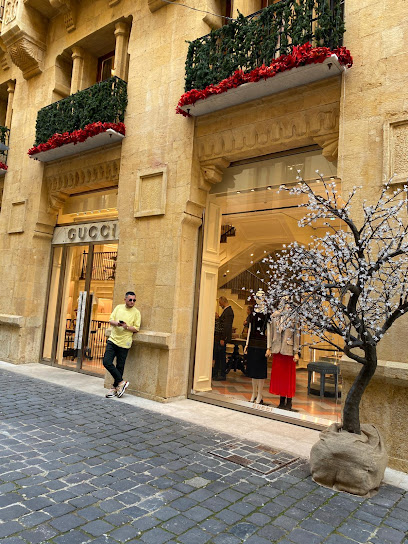
Nouvelle Vague Vintage Store
Explore the charm of vintage fashion at Nouvelle Vague Vintage Store, where unique style meets sustainability in the heart of Beirut.
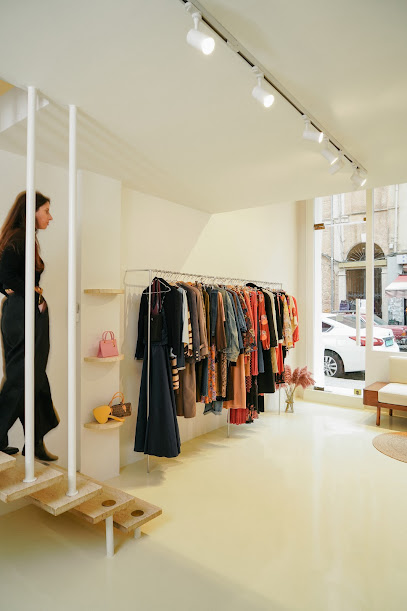
Montblanc Down Town Beirut
Explore the elegance of Montblanc Down Town Beirut, where luxury shopping meets exceptional craftsmanship in the heart of Lebanon.
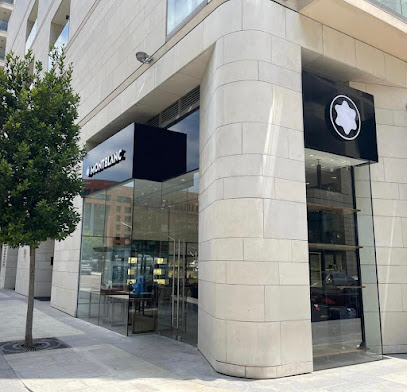
oddfish concept store
Explore the eclectic Oddfish Concept Store in Beirut's vibrant port, where unique gifts, art, and fashion come together in a creative hub.
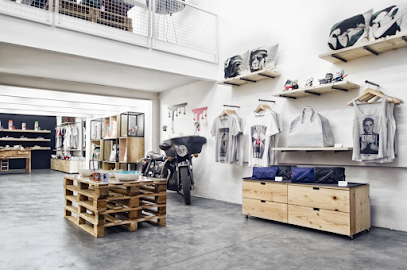
Chic Beirut
Explore Chic Beirut, a vintage clothing store offering unique fashion finds and a nostalgic shopping experience in Beirut's vibrant atmosphere.
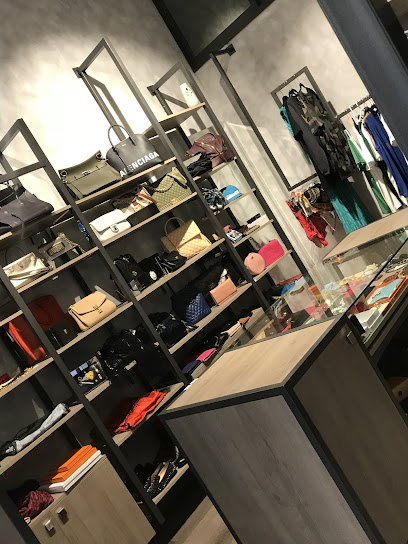
Burberry
Discover luxury fashion at Burberry in Beirut, offering a stunning range of clothing, accessories, and fragrances for the entire family.

Longines Boutique - Al Lenbi
Explore the elegance of Swiss watchmaking at Longines Boutique - Al Lenbi, a premier destination in Downtown Beirut for luxury timepieces.
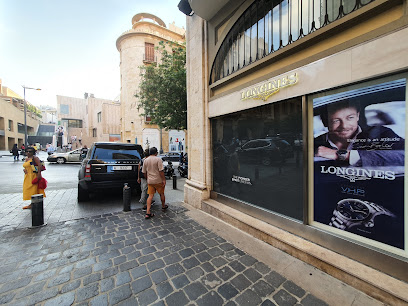
Essential bars & hidden hideouts
Iris
Experience Beirut's vibrant nightlife at Iris, where exquisite cocktails and stunning views create the perfect evening escape.
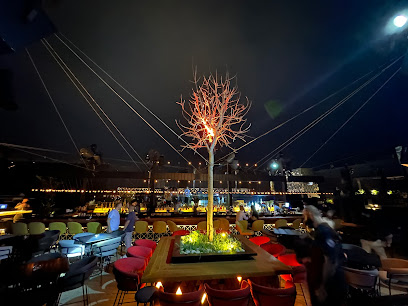
Antika
Experience the vibrant nightlife of Beirut at Antika, a premier waterfront bar known for its creative cocktails and stunning Mediterranean views.
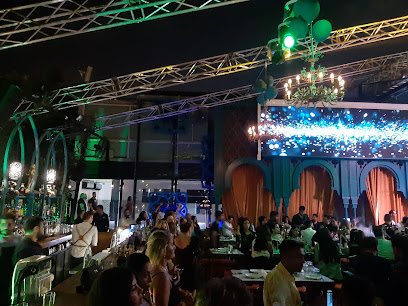
The Bohemian Bar
Discover the vibrant nightlife of Beirut at The Bohemian Bar, where eclectic drinks meet an inviting atmosphere for an unforgettable evening.
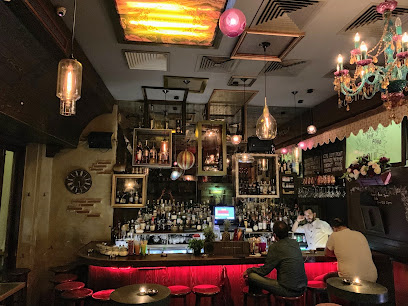
Capitole By Analogue
Discover the vibrant atmosphere at Capitole By Analogue, a rooftop bar in Downtown Beirut offering stunning views, exquisite cocktails, and a chic ambiance.
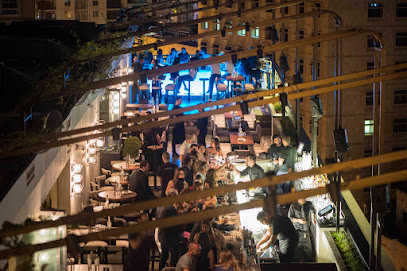
Central Station Boutique Bar
Discover the vibrant cocktail culture of Beirut at Central Station Boutique Bar, where unique drinks meet an inviting atmosphere.
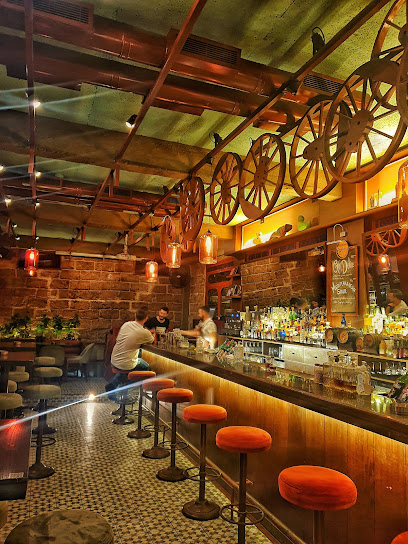
Sayf - صيف
Experience Beirut's nightlife at Sayf, a chic waterfront lounge offering exquisite drinks, delectable bites, and stunning views.
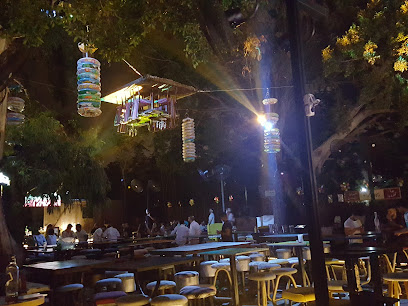
Demo
Discover the vibrant nightlife of Gemmayzeh, Beirut's favorite bar district, where local culture and lively atmosphere await every night.
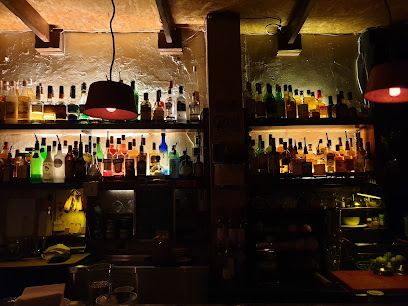
Twenty Two Beirut
Discover the lively nightlife of Beirut at Twenty Two Beirut, a pub renowned for its vibrant atmosphere and delicious drinks.
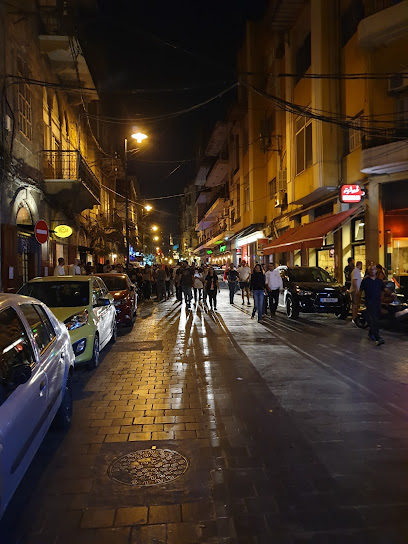
DEAD END PARADISE
Discover the electric ambiance and exquisite cocktails at Dead End Paradise, Beirut's premier cocktail bar for an unforgettable night out.
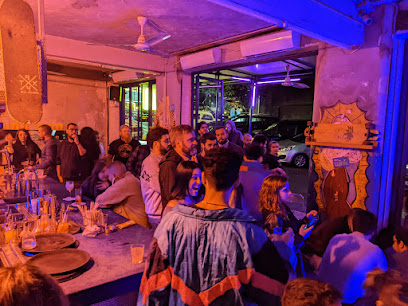
SMALLS
Discover the vibrant nightlife of Beirut at SMALLS, a trendy bar in Gemmayze offering creative cocktails and an eclectic atmosphere.
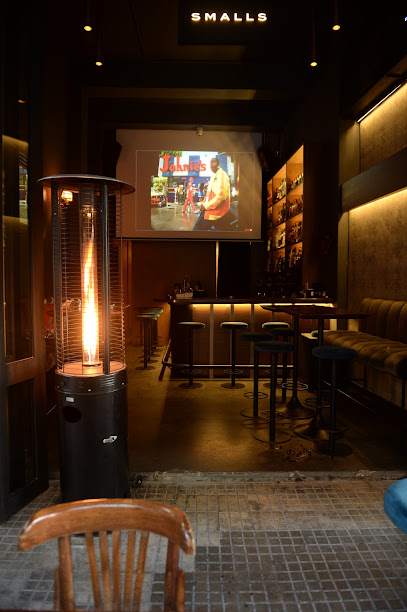
Local Phrases
-
- HelloMarhaba
[mar-ha-ba] - GoodbyeMa'a as-salama
[ma-a as-sa-la-ma] - YesNa'am
[na-am] - NoLa
[la] - Please/You're welcomeMin fadlak
[min fa-dlak] - Thank youShukran
[shu-kran] - Excuse me/SorryAasef
[aa-sef] - How are you?Kifak?
[ki-fak] - Fine. And you?Kwayyes. W inta?
[kway-yes. w in-ta] - Do you speak English?Bet7ke ingles?
[bet-hek in-gles] - I don't understandMish fahem
[mish fa-hem]
- HelloMarhaba
-
- I'd like to see the menu, pleaseBaddi ara el menu, min fadlak
[bad-di a-ra el me-nu, min fa-dlak] - I don't eat meatAna mish be kool lahm
[a-na mish be kool lahm] - Cheers!Saha!
[sa-ha] - I would like to pay, pleaseBaddi adfa', min fadlak
[bad-di ad-fa, min fa-dlak]
- I'd like to see the menu, pleaseBaddi ara el menu, min fadlak
-
- Help!3awn!
[awn] - Go away!Rou7!
[rouh] - Call the Police!Sar il balad!
[sar il ba-lad] - Call a doctor!Sar il tabib!
[sar il ta-bib] - I'm lostZa3lan
[za-alan] - I'm illAna mareed
[a-na ma-reed]
- Help!3awn!
-
- I'd like to buy...Baddi ashtri...
[bad-di ash-tri] - I'm just lookingAna bas bi 2addar
[a-na bas bi ad-dar] - How much is it?Bi khamse?
[bi kham-se] - That's too expensiveHeik ghali kteer
[hei-ik gha-li kteer] - Can you lower the price?Bte2der tkhaf es-sa3r?
[bte-dar t-khaf es-sa-ar]
- I'd like to buy...Baddi ashtri...
-
- What time is it?Kam el sa3a?
[kam el sa-a] - It's one o'clockSaa wa7de
[sa-a wa-hde] - Half past (10)Nes men 3ashra
[nes men a-shra] - MorningSaba7
[sa-ba-h] - AfternoonDuhur
[du-hur] - Evening3ashiye
[a-shi-ye] - YesterdayMbare7
[mbar-eh] - TodayYom
[yom] - TomorrowGhadan
[gha-dan] - 1Wahed
[wa-hed] - 2Itnein
[it-nein] - 3Talaata
[ta-la-a-ta] - 4Arba3a
[ar-ba-a] - 5Khamsa
[kham-sa] - 6Sitta
[sit-ta] - 7Saba3a
[sa-ba-a] - 8Thamania
[tha-ma-ni-a] - 9Tis3a
[tis-a] - 10Ashra
[ash-ra]
- What time is it?Kam el sa3a?
-
- Where's a/the...?Wein fi...
[wein fi] - What's the address?Shu el 3enwane?
[shu el ain-wa-ne] - Can you show me (on the map)?Bte2der te3ni (3a el khareeta)?
[bte-dar te-a-ni (a el kha-ree-ta)] - When's the next (bus)?Izay il sefer el tali?
[i-za-yil se-fer el ta-li] - A ticket (to ....)Talab (ila ....)
[ta-lab (ila)]
- Where's a/the...?Wein fi...
History of Downtown Beirut
-
Downtown Beirut, known as the site of ancient Berytus, has roots that trace back to the Phoenician civilization around 3000 BC. Positioned along the Mediterranean coast, it became a vital trading hub due to its strategic location. The Phoenicians were renowned for their maritime skills and established extensive trade networks across the Mediterranean, which facilitated cultural exchanges and economic prosperity.
-
During the Roman era, Berytus flourished as a prominent city. The Romans recognized its strategic importance, leading to significant urban development. The construction of the Roman Colonnade, which still stands in Downtown Beirut, highlights this influence. The city was also granted the status of a Roman colony, which attracted settlers and further integrated it into the Roman Empire's extensive trade routes.
-
In the 16th century, Beirut became part of the Ottoman Empire, which left a lasting impact on its architecture and culture. The Ottoman period saw the construction of several key buildings and markets in Downtown Beirut, including the Al-Omari Mosque and various khans (caravanserais). The architectural blend of Ottoman and local styles became a defining feature of the neighborhood, reflecting the city’s diverse cultural heritage.
-
The Lebanese Civil War (1975-1990) had a devastating effect on Downtown Beirut, leading to extensive destruction and abandonment. Following the war, a significant reconstruction project commenced in the 1990s, spearheaded by the Solidere company. This revitalization aimed to restore the historical essence of the city while modernizing its infrastructure, resulting in a mix of restored historical buildings and contemporary architecture.
-
Today, Downtown Beirut represents a cultural melting pot, where modernity coexists with historical richness. The neighborhood is home to numerous art galleries, theaters, and museums, including the National Museum of Beirut, which showcases Lebanon's archaeological treasures. Events such as the Beirut Art Fair and the Beirut International Film Festival further emphasize the area's role as a cultural hub in the region.
Downtown Beirut Essentials
-
Downtown Beirut is easily accessible from various neighborhoods in the city. From Hamra, you can take a short taxi ride or a bus on Hamra Street that will drop you off in the downtown area. If you're coming from Achrafieh, taxis are the most convenient option. The Beirut Metro, although not fully operational, offers limited services that connect some nearby areas to the downtown district. If arriving from the airport, consider using a taxi or a ride-hailing app, which will take approximately 20-30 minutes, depending on traffic.
-
Downtown Beirut is compact and walkable, making it easy to explore on foot. While there are no trains or extensive public transportation options within the downtown area, taxis and ride-hailing services like Careem and Uber are widely available for longer distances. Bicycle rentals are also an option, with several rental stations located throughout the neighborhood. Be mindful of the traffic, especially during peak hours.
-
Downtown Beirut is generally safe for tourists, but it is advisable to remain vigilant. Avoid walking alone late at night in less-populated areas, particularly around the outskirts of downtown. While the area is mostly secure, petty crimes such as pickpocketing can occur in crowded places. Areas such as the outskirts of Burj Hammoud and parts of Gemmayzeh may have higher crime rates, so exercise caution when venturing there.
-
In case of emergency, dial 112 for police assistance or 125 for medical emergencies. There are hospitals and clinics available in and around Downtown Beirut. It is also wise to have travel insurance that covers medical emergencies. For minor health issues, pharmacies are widely available, offering over-the-counter medications.
-
Fashion: Do dress modestly, especially when visiting religious sites. Avoid overly revealing clothing. Religion: Do respect local customs and traditions. Always cover your head when entering churches and mosques. Public Transport: Do be respectful and give up your seat to elderly passengers. Don’t eat or drink on public transport. Greetings: Do greet people with a handshake. A slight bow of the head is also a sign of respect. Eating & Drinking: Do try local delicacies and accept food offerings graciously. Don’t refuse hospitality, as it is considered impolite.
-
To experience Downtown Beirut like a local, visit the bustling Souk el Tayeb market for fresh produce and handmade goods. Engage with street vendors and don't hesitate to ask about local dishes. Explore the historical sites, such as the Mohammad Al-Amin Mosque and the Roman Ruins, and take time to enjoy a coffee at one of the many cafes lining the streets. For a unique experience, try to catch a local music or cultural event at the Beirut Art Center or the nearby Zaitunay Bay.
Nearby Cities to Downtown Beirut
-
Things To Do in Broummana
-
Things To Do in Aley
-
Things To Do in Jounieh
-
Things To Do in Deir el Qamar
-
Things To Do in Byblos
-
Things To Do in Zahle
-
Things To Do in Sidon
-
Things To Do in Batroun
-
Things To Do in Anjar
-
Things To Do in Rashaya
-
Things To Do in Bcharre
-
Things To Do in Marjayoun
-
Things To Do in Baalbek
-
Things To Do in Tyre
-
Things To Do in Rosh HaNikra












